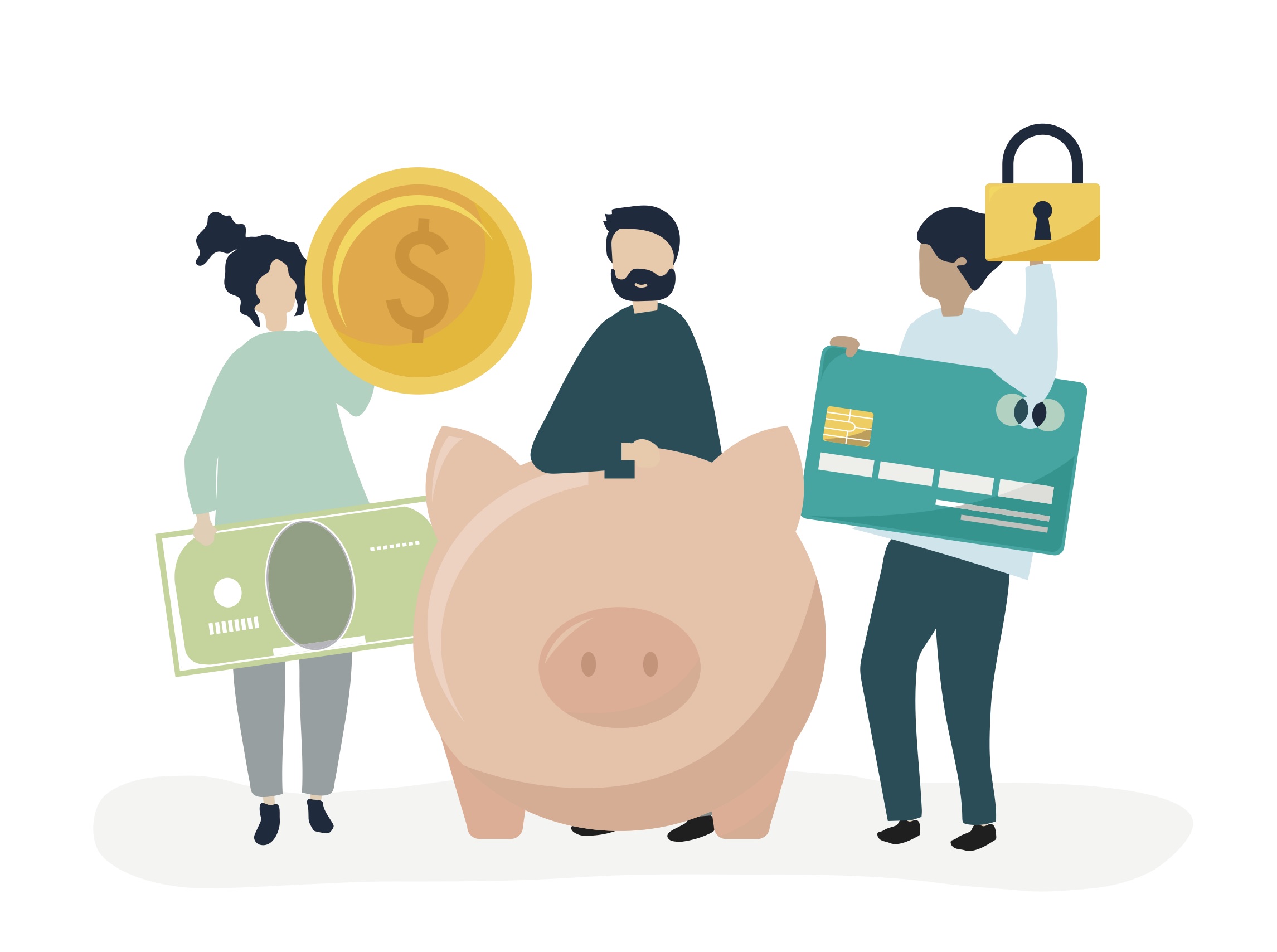Most students start adult life with student loans. These loans are given to them with a great deal of ease considering their lack of credit history. Of course, student loans are significantly easier to get approved for than other loans due in part to the fact that student debt is often looked at as good debt because it will lead to, fingers crossed, better employment. For those with no previous credit history, student loans can be easier to get than some credit cards. Equifax notes that taking out and repaying these loans is a good thing since it can, like other loans and credit cards, be a great way to raise credit scores. So what is a credit score? How do you get one? Why do you need one?
A credit score is a number that assists lenders in knowing if you are a good person to lend to, in other words, if you are likely to pay back what you owe. The range of scores goes from 300 up to 850, and the higher the better. According to doughroller.net, how you’re rated comes down to five categories with different weights of importance. Most heavily weighted is your payment history, which makes for 35 per cent of your score. This means paying debts on time or even ahead of time is of the utmost importance.
Next comes the amount owed, at 30 per cent of your overall score, which means the more you owe the worse the credit score can be. This is in part because of debt-to-income ratio. Your debt- to-income ratio plays a big part because the more debt you have, the less likely you are to be able to pay it off unless your income also increases. After all, you need to make money to pay the debt. If you overextend yourself, how will you pay back the debts and still have enough for basic life necessities?
Third, is your length of credit history. At 15 per cent, the longer the history the better, because for banks that’s more years of proof that you are a good borrower. To be clear, by being a borrower you don’t need to put yourself into a great deal of debt, even a small credit card that you can use for something, such as groceries, and then pay in full every month will suffice in building history. It’s important to still keep that debt-to-credit ratio down.
Fourth is the pursuit of new credit, which is worth 10 per cent and is extremely important. If you are going on a credit application rampage, applying for every credit card in sight, it is a huge warning sign to lenders that something is wrong and it will decrease your chances of getting approved at all. It also can affect your score negatively because when you apply, a credit check is done and that lowers the score. The more times you apply, the more checks happen, the lower your score gets, so be careful with your applications and make them only when necessary.
Lastly, we have the types of credit used, also worth 10 per cent. This has to do with the kinds of products you have. Is it all credit card debt or are there loans and mortgages? These affect your credit because each product has different terms. Some, such as loans, you pay off and then they are closed — thus lowering your debt-to-credit ratio — but credit cards can always be used, so it remains as a possible debt against the amount of income you make even when it is at zero balance.
It is never too early to find a great financial advisor
Everyone starts with no credit history. Once you are ready to take out a loan or get a credit card, that first one can be tricky since banks often look to this score as a guide to whether or not a potential lender is likely to pay it back. This is where student loans are often helpful because they are more likely to be approved and it is expected that students applying for student loans won’t have much of a credit history. If you already had a credit card or loan, you already have a head start. If not, then this is your starting point.
So now that you might have something to pay back, what can you do? Well, the tricky thing is that at first, you aren’t paying back your loan because you’re still in school and your loan isn’t due. This means a school loan can sit there with no payment history until payments are actually due. For this reason, it is a good idea to put some money towards the loan even before you finish your degree. Even if you only make a couple of small payments, it will help to show some history and at the same time make it so that when you’re done the primary amount will be lower, leading to less interest that you have to pay.
According to thebalance.com, the other important thing to factor in here is that having all your other products, such as credit cards and loans (if you have any), maxed out will also lead to a lowering of your score. If credit cards are always full it can signal that you can’t live without credit, posing the question: what happens if you lose a job? How will you pay back all this debt? As well as affecting the minimum amounts that you have to pay and incurring possible penalties if you go over your limit. Those are the questions that algorithms are designed for, which could result in a score loss. It can also leave you stressed and in a spot no one wants to be, something to consider when all those banks are sitting outside the bookstore offering you cred- it cards like they’re Oprah during her giveaway episodes: “You get a card! And you get a card! Everybody gets a card!” This all seems fantastic until you have to start paying them back, and the reality really sets in.
The world of credit scores is a complicated one and the algorithm used to calculate the score that gives you the best chance of getting the financial help you need is fiercely guarded. The one thing you can do is learn to play the game as best you can and the information is vast. There are multiple online sources including Equifax and TransUnion, all of which offer advice and a chance to look at your credit score, some even for free. There are, however, things to consider. Equifax will let you view your credit history for free, or for $11.95 with your credit score, but you have to mail in a form and wait for them to send the history and score out to you, also through the mail. On the other hand, you can get it done online along with credit monitoring, at the cost of $19.95 a month through Equifax, costly if you’re a student. Places like creditkarma.ca offer it completely free, though it is crucial to know that they use TransUnion, another top cred- it-reporting agency and unfortunately they usually score cred- it higher than Equifax. This may not seem like a problem, but according to Gil Weekes, mortgage broker with The Mortgage Group (TMG), most lenders check Equifax — with the exception of Canada Mortgage and Housing Corporation (CMHC), Genworth, and Canada Guaranty, mortgage insurers who check both Equifax and Transunion. Since the credit reporting business is a complicated one and lenders might view different agencies than those the customer views, this could create a discrepancy. If you see a credit report with a score of 750 and then apply for a loan only to be denied because your score is showing at 670 on Equifax, you will be none too pleased.
So how do we make sense of all of this information? Well here is some personal experience from someone who has borrowed and paid many loans, as well as monitored and checked her credit for a long time. Credit Karma is still a great option, but keep in mind that what you see and what lender see will be very different, you should account for a lower score at the bank by at least 50 to 80 points.
Next, know that debt is a necessary part of life but how you use it is where the problems lie. A credit card is great and will help you, but not if it is full. Your best bet is to follow the recommendations of wallethub.com: never spend more than 30 per cent of your limit and always pay it off monthly if possible, as it will save you interest. Any loans can be helpful if they are paid in a timely manner and don’t ever overextend yourself. School is already stressful enough without drowning in debt.
Finally, seek help. It is never too early to find a great financial advisor and a great advisor will be happy to help because they know that as you go through life and its chapters, if they did a good job you will continue to look to them for help in not just loans but investments and one day, yes, even retirement.





0 Comments